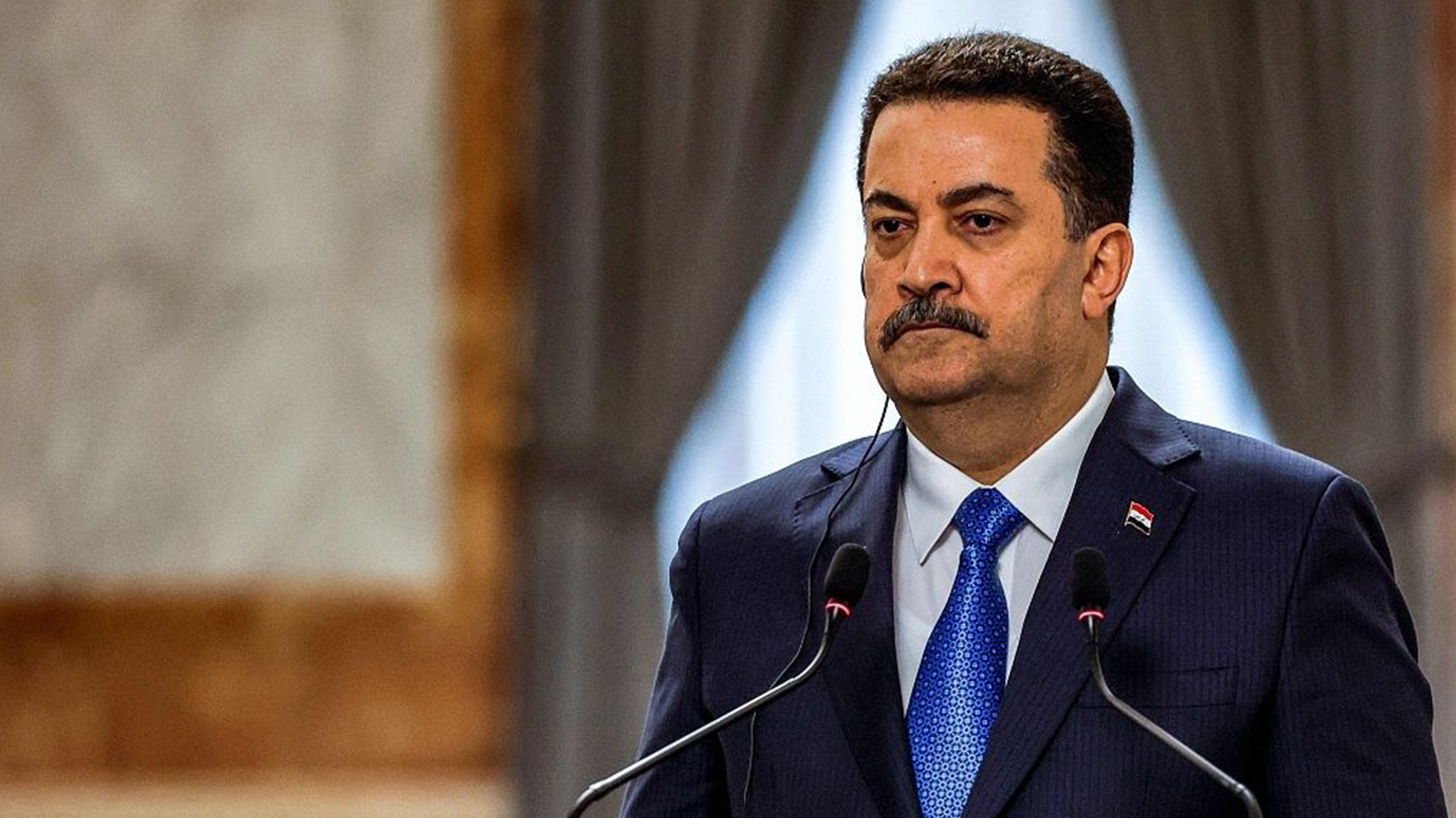Iraqi PM Dismisses Israel Recognition, Reaffirms Sole Authority of State Arms
"There is no intention to recognize Israel or sign a peace treaty," Iraqi PM said, firmly dismissing speculation over any shift in Iraq’s position.

By Ahora Qadi
ERBIL (Kurdistan24) – Iraqi Prime Minister Mohammed Shia al-Sudani has categorically denied any intention by his government to recognize Israel or establish diplomatic ties, reiterating Baghdad’s unwavering commitment to the Arab consensus on the Palestinian issue.
In an interview with Sky News Arabia, Sudani emphasized that Iraq’s foreign policy remains aligned with longstanding Arab principles regarding Palestine. "There is no intention to recognize Israel or sign a peace treaty," he said, firmly dismissing speculation over any shift in Iraq’s position.
Monopoly on Arms: A Central Pillar of State Stability
Sudani also underscored his government’s commitment to consolidating state authority over all weapons, stressing that the monopoly on arms must remain solely in the hands of official institutions.
"The government is advancing with the principle of exclusive state control over arms," Sudani declared. "The presence of parallel weapons structures contradicts the concept of the state."
He pointed to Iraq’s long-standing fight against terrorism over the past two decades as a backdrop for current reforms, stating that the security apparatus is being strengthened through a comprehensive legal, political, and security roadmap aimed at disarming non-state actors.
Experts Skeptical of Implementation amid Armed Group Presence
Despite the prime minister’s assurances, political observers remain skeptical about the government's ability to neutralize powerful armed factions operating outside state control.
Academic and political analyst Mohammed Nanaa described the current situation as a "temporary truce" with these groups, noting the state’s continuing failure to uncover weapons caches or fully monitor the movements of non-state militias.
Meanwhile, political science professor Ahmed al-Mayyali told Sky News Arabia that the government’s approach appears to be one of "gradual containment" rather than direct confrontation. He suggested that integrating these factions into Iraq’s formal security forces could provide a path forward, but emphasized the need for careful planning and coordination.
Nanaa warned that several of these factions are not driven solely by material interests but are ideologically aligned with external powers. “Achieving true security sovereignty,” he said, “requires severing these ideological ties and cutting off their funding sources, which in some cases originate from within the Iraqi state itself.”
Al-Mayyali added that while Iranian influence in Iraq has waned since 2020, many factions have since developed domestic economic networks that grant them financial autonomy—making full containment increasingly difficult.